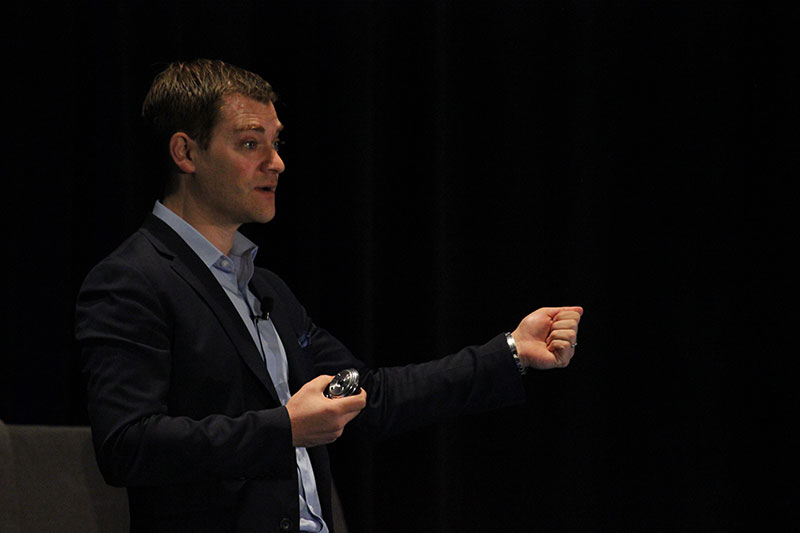Food delivery is “not some cute fad” as some restaurant CEOs would suggest. “This is a fundamental shift,” declared Noah Glass, founder and CEO of Olo, speaking at the first Food On Demand Conference in Dallas today.
Olo, as many of its 95 million users know, provides digital ordering and on-demand interfaces for the restaurant industry, so he may be said to have a vested interest in his predictions. But he painted a detailed and convincing case in a keynote address at the conference, the first of its kind and presented by the publisher of Food On Demand, Franchise Times and the Restaurant Finance Monitor.
Glass himself was ahead of his time founding his service in 2005, pre-dating the iPhone. “Less than 5 percent of people in the U.S. had smartphones,” he recalls. “People had dumb phones. We had to build something back then that a consumer could use. We built a text messaging platform, and we had to explain, here’s how you send a text message.”
Glass recited data that predicts a $200 billion shift toward digital ordering in the coming years. “In an $800 billion industry this is an incredibly large shift. Twenty-five cents of every dollar is heading this way,” he says.
He warned against thinking like an old-timer. “Some restaurants are under the tyranny of legacy. QSR is an example,” he said, referring to quick-service restaurants. “CEOs have come up for decades” and may be putting all their effort into creating a faster drive-thru, for example, rather than adding delivery options.
That reminds him of Henry Ford, who famously said if he asked customers what they wanted, they would have asked for a faster horse rather than the Model T. “I think of the same thing for some who think they need a faster horse. On-demand ordering is the car,” Glass said.
He described “tablet hell,” and showed a photo of on unidentified restaurant with an array of 10 or 12 different tablets on a table out front. “Somebody has to check all these and get an order into a point of sales system,” he said. “10 to 20 percent of these orders that come in don’t even get looked at.” To avoid that sad picture, an integrated POS is a must.
And he was adamantly against signing with only one third-party delivery system, something that many operators do because they generally can get a better price. “No exclusive deals,” he advised operators, although other speakers at the conference, naturally including delivery service platforms, suggested the opposite. “It’s like making an exclusive deal with one credit card company,” so then only taking Visa rather than MasterCard and American Express, too. “Restaurants should not be doing exclusive deals with delivery platforms.”
If anyone doubted they should pay attention to the topic, Glass had a warning. “Restaurants who say ‘I don’t really need to engage with this’ are doing their brands, their franchisees and all their stakeholders a potentially fatal disservice.”
The Food On Demand Conference is presented by Food On Demand, an e-newsletter and media project developed by the publishers of Franchise Times and the Restaurant Finance Monitor, covering the intersection of food, technology and mobility. It continues through tomorrow at the Renaissance hotel in Plano, Texas.


